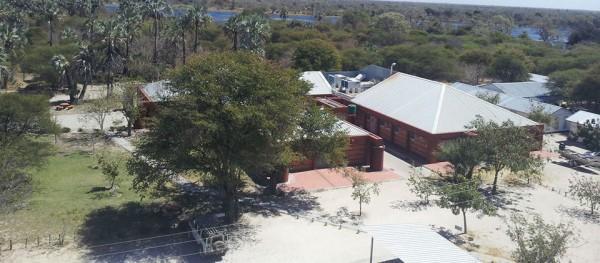Africa-Press – Botswana. Okavango Research Institute (ORI) has been commended for its brilliant initiative, which aims to communicate science research, inspire curiosity and encourage learning amongst students in Maun.
The institute held a two-day ‘STEAM festival’ which accommodated numerous exhibits, and activities.
Prior to that, learners were taken on tour and demonstration of science facilities around Maun.
ORI offers multi-discipline programmes in natural resources and the graduate programme offers students the opportunity to carry out a natural science or social science research-based higher degree in the unique environment of the Okavango and Kalahari regions.
A Chemistry teacher from Maun Senior Secondary School, Mr Gift Dick said the festival was an eye opener for both learners and teachers and wished it could be held annually.
“This is a welcome event as it can inspire learners to take science research seriously and we wish ORI could also allow schools to fully utilise their laboratory facilities as they were well equipped,” he said.
Some school laboratories, he said lacked resources, hence teachers were improvising and imparting knowledge from books as opposed to practical experiments.
He believed that it would be helpful if ORI could open doors for schools to conduct practicals at their facility.
Another Physics and Chemistry teacher from Leapotswe English Medium School, Mr Shepherd Ngwenya concurred that the festival was educative and informative as learners learnt science and application of knowledge in research. He appreciated that the event opened learners’ minds as they learnt about the importance of the environment and conservation, adding that the majority of them lacked knowledge about the Okavango Delta and its justification of outstanding universal value.
“Learners can now link what they learnt to Biology and other science subjects, as well as how to manage the natural resources sustainably,” said Mr Ngwenya.
Some learners also appreciated ORI for engaging schools, saying they had learnt a lot and cited the scientific information on the delta ecosystem and how to apply new teaching and technical innovations.
They were mostly impressed to have toured the institute herbarium, which housed over 80 per cent of specimens collected from the delta, which is the 1000th World Heritage Site.
They learnt that through the facility, they could use the standard reference collection to verify botanical and taxonomic information of their collection.
Meanwhile, Ms Maipelo Maphakwane from Delta Waters English Medium said, “ORI has renewed our thinking because we have realised that technology can change the game in classroom just by using creative teaching strategies, engaging students in meaningful and critical questions.”
She hoped that the festival would motivate more learners to enroll in the more rigorous earth science courses in future and become experts in different science-related fields. She was impressed to learn about critical thinking skills, which included the verbal reasoning skills needed to defend against common persuasive techniques.
One of the event organisers, Ms Nametso Ponchi-Tshekiso from ORI revealed that they organised the event in collaboration with the Ministry of Communication, Knowledge and Technology as a curtain raiser for the commemoration of national science week slated for Letlhakeng on August 21 -25.
She said they found it fit to collaborate with Maun schools and take learners on a tour of organisations dealing with science and technology-related fields to appreciate what they offer.
Dr Keotshepile Kashe from ORI appreciated that the ministry funded the event, which aimed at communicating science research in other ways.
He further noted that it was critical for learners to take part in the transformation of manufacturing industry by using science knowledge skills.
Science-related subjects, he said were the drivers of the 4th industrial revolution and knowledge-based economy, adding that science could also stimulate entrepreneurship among the society.
Technology, he said, could help to find solution to challenges as well as be used to make science more accessible and relevant to people.
Science teachers from different schools commended the organisers, saying the festival had the potential to enhance science teaching and learning.
The event, they said, had inspired learners, who believed that it would boost their achievements in science and make school work more relevant to their lives.
For More News And Analysis About Botswana Follow Africa-Press






